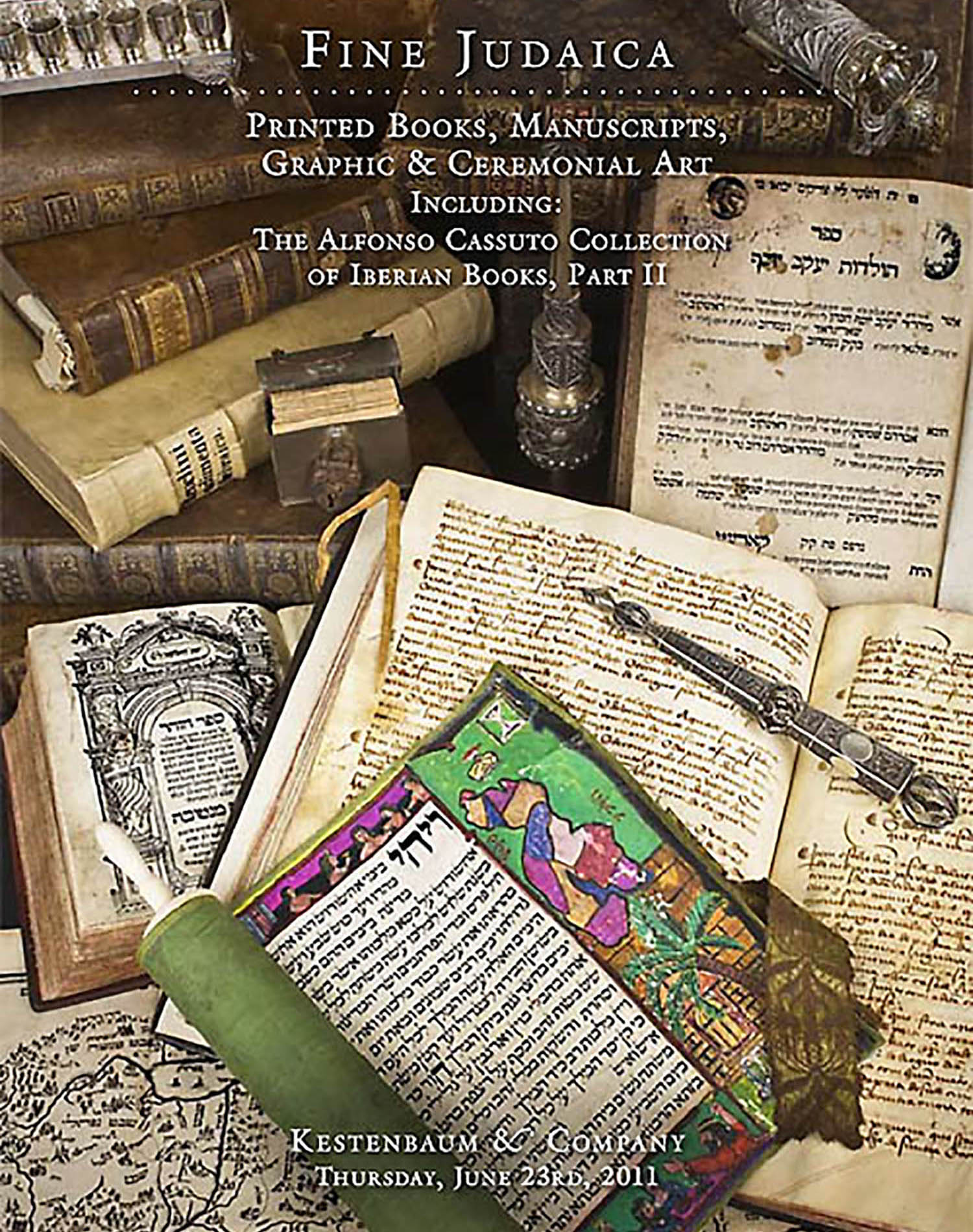(Bible, Hebrew and English. Pentateuch). Torath HaElo-him - The Law of God. "Edited, and with Former Translations Diligently Compared and Revised” by Isaac Leeser

AUCTION 51 |
Thursday, June 23rd,
2011 at 1:00
Fine Judaica: Printed Books, Manuscripts Graphic & Ceremonial Art Including: The Alfonso Cassuto Collection of Iberian Books, Part II
Lot 79
(AMERICAN JUDAICA)
(Bible, Hebrew and English. Pentateuch). Torath HaElo-him - The Law of God. "Edited, and with Former Translations Diligently Compared and Revised” by Isaac Leeser
Philadelphia: C. Sherman 1845-6
Est: $5,000 - $7,000
PRICE REALIZED $4,500
The First Translation into English of any part of the Bible by an American Jew. Specifically issued for the American-Jewish Community.
This set of Chumashim was Isaac Lesser’s crowning literary achievement and remained the standard Jewish translation well into the 20th-century. See B.J. Bamberger, American Jewish Translations of the Bible in: The Jewish Book Annual (1957) pp. 33-40.
Leeser himself writes, “I doubt whether the precious word of God ever appeared among us in a more beautiful form than the volumes in which I am now engaged... I thought, in all due humility, that I might safely go to the task, confidently relying upon that Superior aid, which is never withheld from the inquirer after truth” (p.vii). Leeser’s beautifully worded introduction recounts his desire to prepare a translation specifically for an American Jewish readership. “My intention was to furnish a book for the service of the Synagogue, both German and Portuguese” (p. viii). Leeser achieved this despite the inherent difficulties in undertaking such a monumental task due to the lack of Hebrew scholars resident in America sufficiently qualified to assist. Indeed, in describing the evolution of his translation and the reasons for attempting it, Leeser clearly enunciates his patriotism for America: “It has always appeared to me that such a labor ought to be accomplished in this very country" (p. v) "I have to state I have not looked at a single work issued by the English Jews, and that hence I have not borrowed a single idea or suggestion from any one of them, living or dead” (ibid. p. x)
